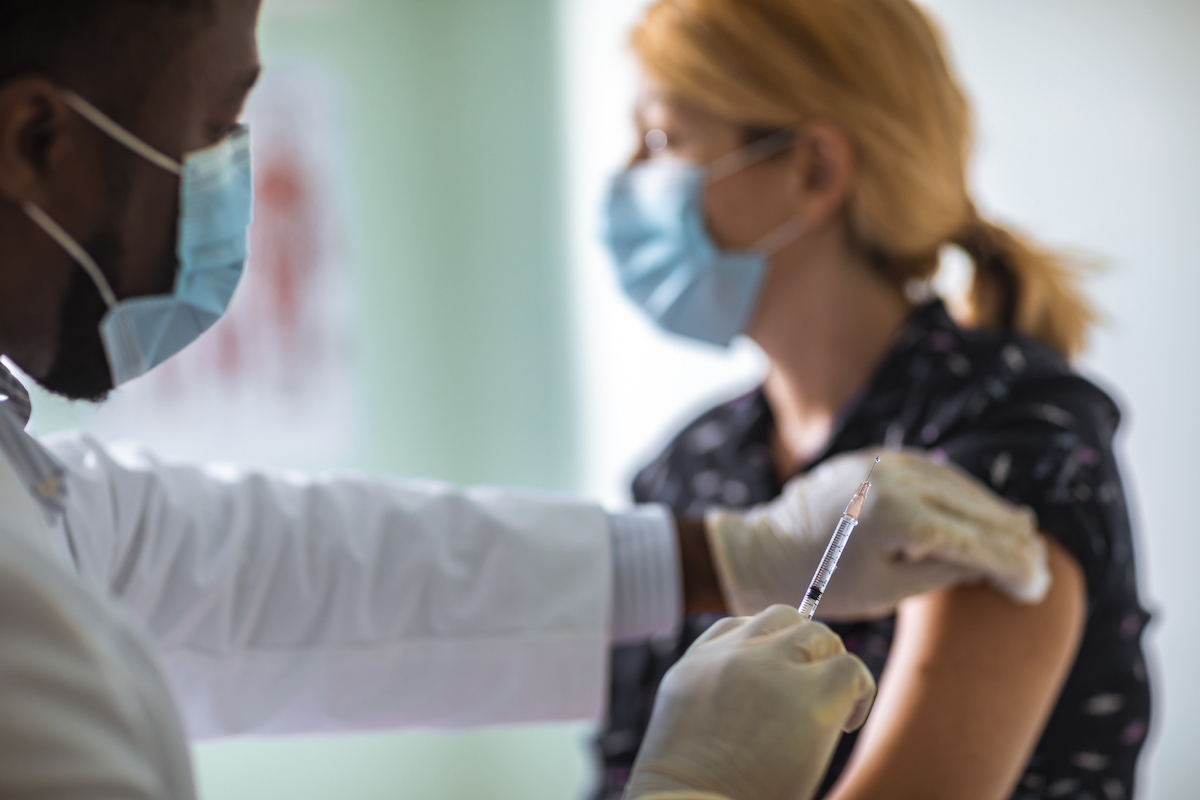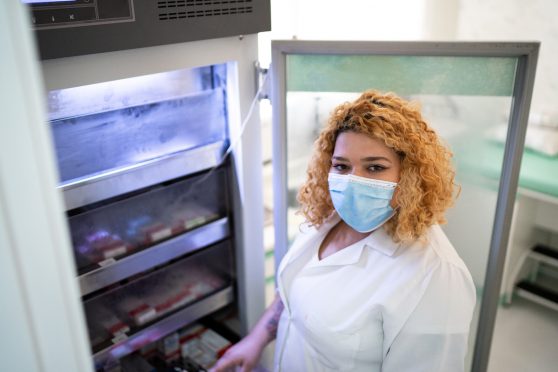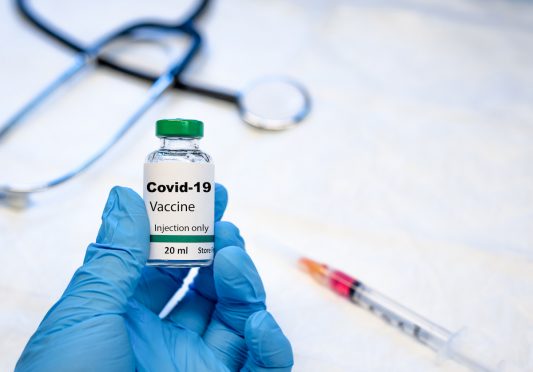<< Back
COVID-19 Vaccine in Connecticut: What You Need to Know

December 10, 2020
Here’s your guide to the COVID-19 vaccine, with first shipments expected within days in Connecticut:
Vaccine Rollout
Q: When can I get a vaccine?
A: The state Department of Public Health recommends everyone get a vaccine when appropriate.
Here are the anticipated phases:
As soon as the vaccine is received: Healthcare workers, long-term care facility residents, medical first-responders.
January-May: Critical workforce, other congregate settings, adults over 65, high-risk individuals under 65.
June-December: Those under 18, remaining people over 18.

Vaccine Safety
Q: Is the vaccine safe and effective?
A: Data we have indicates that the vaccine is safe. The U.S. Food and Drug Administration (FDA) will continue to monitor for safety issues.
Q: What are the possible side effects of the vaccine?
A: As with any injection, you can expect some pain or itching at the injection site. Based on interim data, side effects may include fatigue, muscle pain, headaches, joint pain, and/or fever in some patients. More severe side effects were reported in fewer than 2 percent of the study participants, but may be increased with the second dose. British health officials advised people with a “significant history of allergic reactions” not to get the Pfizer vaccine after two healthcare workers experienced a reaction after getting the injection earlier this week. We will provide more information as vaccines progress through the U.S. Food and Drug Administration’s (FDA) Emergency Use Authorization (EUA) process.
Q: How does the vaccine work?
A: The Pfizer and Moderna vaccines are different from more traditional vaccines, which often use a weakened or dead version of a virus, or a laboratory-generated protein, to trigger an immune response. The COVID-19 vaccines instead use a snippet of the virus’s genetic code to teach the immune system to recognize and fight the coronavirus. This is called a messenger-RNA (mRNA) vaccine. (To learn more, click here.)
Q: Can I get COVID-19 from receiving the vaccine?
A: No. The vaccine does not contain live or dead virus, so it cannot infect you with COVID-19.
Q: Will I be contagious after receiving the vaccine?
A: The COVID-19 vaccines are not live vaccines, therefore will not make you contagious. You should, however, continue to wear a mask indoors at all times except at home and practice physical distancing even after you have received both doses of the vaccine.
Q: Can I get the vaccine if I am pregnant?
A: Awaiting Emergency Use Authorization (EUA) from the U.S. Food and Drug Administration (FDA). There is currently insufficient data to make conclusions about the safety of the vaccine in pregnant patients.
Q: Should I get the vaccine if I am immunocompromised?
A: Awaiting Emergency Use Authorization (EUA) from the U.S. Food and Drug Administration (FDA). There is currently insufficient data to make conclusions about the safety of the vaccine in immunocompromised patient populations.
Q: Does the flu vaccine protect you from getting COVID-19?
A: No. The coronavirus and the influenza virus are different. The flu vaccine does not protect you from becoming infected with the coronavirus, so you should get the COVID-19 vaccine in addition to the flu vaccine. A recent study suggested that people who received the flu vaccine faced a lower risk for being hospitalized if they got COVID-19.
Q: Typically it takes many years to develop a vaccine: Were corners cut to approve the COVID-19 vaccines so quickly?
A: Scientists tell us that all of the same safety precautions used for developing other vaccines have been followed for the COVID-19 vaccine. There are two reasons why the process could be fast tracked: First, scientists were able to start their work before there was a known case of the novel coronavirus in this country, using the viral genome shared online as a template. In addition, developing messenger RNA vaccines does not require time-consuming steps, such as growing ingredients in chicken eggs, which is necessary for flu shots, for example.

Getting Vaccinated
Q: Do I need to receive more than one vaccination?
A: Two doses of vaccine, separated by 21 or 28 days, will be needed. Because different COVID-19 vaccine products will not be interchangeable, your second dose must be from the same manufacturer as your first dose.
Q: Do I need to receive my second dose exactly 21 or 28 days from the first dose?
A: No. The number of days between the two doses is the recommended minimal interval between the two. Your second dose will be scheduled as close as possible to the second date once the full minimal interval has passed.
Q: What if I miss my second dose?
A: We strongly recommend receiving the second dose, otherwise the vaccination series will be incomplete and you may not be fully protected.
Q: Can I get the vaccine if I am feeling ill? Do I need to feel 100% well to receive the vaccine?
A: As with all vaccines, it is recommended that you do not receive the COVID-19 vaccine if you are feeling ill.
Q: What should I do if I am offered the opportunity to receive the vaccine while I am in quarantine?
A: To protect others, you must wait to get vaccinated until you have completed your quarantine.
Q: What happens if I get COVID-19 between vaccine doses?
A: You would still need to self-isolate per current guidelines. A decision by the Infection Prevention team will be made in regard to receipt of the second dose of the vaccine. To stay safe between vaccines, and even after you receive the full dose, you are urged to continue practicing physical distancing, wear a mask indoors at all times except at home, and wash your hands frequently until further notice.
Q: Do I need the vaccine if I have already had COVID-19 and recovered?
A: Yes, you should still receive the vaccine. Experts continue to study antibodies that develop in response to COVID-19. If these antibodies are protective, it’s not known what antibody levels are needed to protect against reinfection. Therefore, even those who previously had COVID-19 can and should receive the COVID-19 vaccine.
Q: Do I need the vaccine if I have tested positive for COVID-19 antibodies?
A: Yes. Even if you have tested positive for COVID-19 antibodies, it is recommended that you receive the vaccine.
Q: Do I need to continue to wear a mask and maintain social distancing after I have received the two doses of the vaccine?
A: Yes! The vaccine is estimated to be 95 percent effective, meaning that over 5 percent of vaccinated people could still get the virus. So we need to continue to wear masks, maintain social distance and use other precautions. Also, because not everyone will be vaccinated all at once, it will take a while before COVID-19 is no longer circulating widely.
For more information on the COVID-19 vaccine, click here.